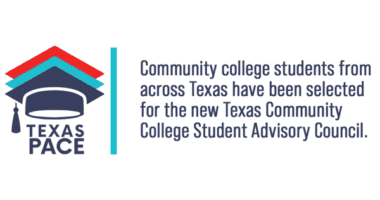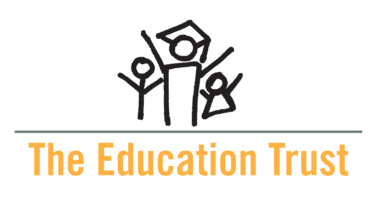Joint Letter to Congress from 20 Education Organizations Calling for Policies to Increase Teacher Diversity as Part of Higher Education Act Reauthorization
The Honorable Robert Scott
Chairman
House Education & Labor Committee
Washington, DC 20510
The Honorable Lamar Alexander
United States Senate
Washington, DC 20510
The Honorable Virginia Foxx
United States House of Representatives
Washington, DC 20515
The Honorable Patty Murray
Ranking Member
Senate HELP Committee
Washington, DC 20510
Dear Chairman Scott, Ranking Member Foxx, Chairman Alexander, and Ranking Member Murray:
As organizations committed to advocating for low-income students and students of color, we believe it is imperative that you make increasing the diversity of the teacher workforce a key part of any reauthorization of the Higher Education Act (HEA).
While the U.S. student population has become more diverse, the teacher workforce has not kept pace. Recent data show that approximately 47 percent of public school students in grades K through 12 are Black, Latino, Native, or Asian/Pacific Islander, yet only 18 percent of teachers are Black, Latino, or Native. Students are losing out because of that lack of teacher diversity: schools staffed by leaders and teachers of color expose all students to positive role models and counteract negative stereotypes that misrepresent people of color. And the benefits of teacher diversity can be especially important for students of color. When students of color have a teacher of the same race, they do better academically, and they are more likely to graduate from high school and go on to a four-year college. Teachers of color are also more likely than White teachers to have high expectations for students of color, and less likely to use exclusionary discipline on them.
If we want to improve teacher diversity, we must address the gaps at each point in the teacher pipeline, starting with teacher preparation. We urge Congress to take advantage of the reauthorization of the Higher Education Opportunity Act (HEA) as an opportunity to increase the diversity of the teacher workforce.
The current authorization of HEA provides a foundation for districts and institutions of higher education to begin to address this issue. Title II’s Teacher Quality Partnership grants (TQP), awarded to partnerships of high-need districts and teacher preparation programs at institutions of higher education, can be used to recruit underrepresented populations to the teaching profession. HEA also provides funding for Minority Serving Institutions to make improvements to their teacher preparation programs, and the law requires every preparation program nationwide to report its student demographics.
These elements are a good start and should be preserved, but we urge Congress to do more to increase the diversity of the teaching profession. Specifically, we urge Congress to:
- Expand the ways that the Teacher Quality Partnerships grant program can be used to increase the diversity of new teachers, including by:
- Encouraging partnerships to create “grow-your-own” pathways towards degrees/teacher certification for candidates from untapped sources (e.g., paraprofessionals, early childhood caregivers) as a way to meet the existing requirement to recruit “individuals from under represented populations.” These candidates are likely to reflect the diversity of the student population and to be dedicated to serving students of color and/or dual language learners.
- Explicitly allowing TQP funding to be used for induction programs with racial affinity cohort groups that provide a system of support for teachers of color to deal with the “invisible tax” that they too often face (e.g. being reduced to a disciplinarian, being expected to serve as a translator).
- Expanding TQP to allow teacher preparation programs to apply for funds to create programs through which current teachers can get bilingual or special education endorsement and/or pursue bilingual or special education dual certification.
- Requiring that partnerships are grounded in evidence and incorporate substantive plans for sustainability after the federal funds end.
- Provide targeted funding for Minority Serving Institutions and institutes of higher education that graduate large numbers of teachers of color from their teacher preparation programs to increase the pipeline of teachers in shortage areas (STEM, bilingual, special education, etc.). That funding would address two concerns: increasing the number of teachers in shortage areas, and increasing the diversity of the teaching workforce. Exposure to a diverse teacher workforce is important for all students, so programs to boost the diversity of the teaching workforce should go beyond efforts focused on high-need schools. This is especially important because currently Black teachers are disproportionately likely to be serving in hard-to-staff high-need schools; essentially, teachers are segregated similarly to students.”
- Expand financial support, including loan forgiveness, service scholarships, loan repayment incentives, and relocation incentives, for teacher candidates, to reduce the financial barriers to entering the teaching profession that students from low-income families may face.
- Require preparation programs to report the rates at which each group of students completes the program and in which certification areas. Absent this information, states – and the public – will have information about the diversity of enrollees – but not about which groups of students successfully complete teacher preparation programs, or if some groups are underrepresented in certain areas of teaching.
Thank you for your attention to this important issue.
Sincerely,
Center for American Progress
Democrats for Education Reform
Deans for Impact
Educators for Excellence
Learning Forward
Learning Policy Institute
Lehman College-City University of New York
National Association of Elementary School Principals
National Association of Secondary School Principals
National Association of State Boards of Education
National Council on Teacher Quality
National Education Association
New America Education Policy Program
PDK International
School of Education, Loyola University Maryland
State Higher Education Executive Officers (SHEEO)
Teach for America
Teach Plus
The Education Trust
WestEd









